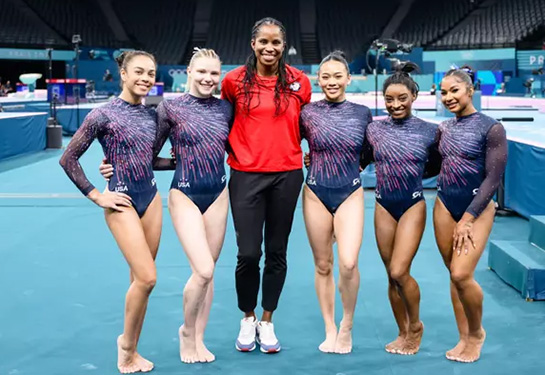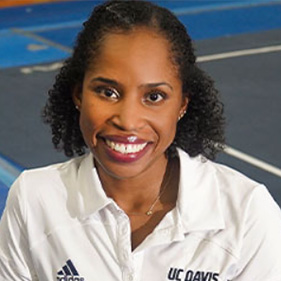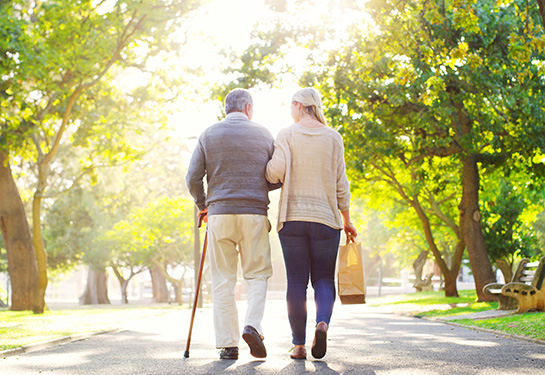‘It’s hard work, but worth it’: Marcia Faustin on life as a family, sports medicine doctor
Co-head team physician for UC Davis Division I Collegiate Athletics and the U.S. Gymnastics women’s team shares her journey
September is Women in Medicine Month. One way to celebrate women in medicine is to learn from the journey of exceptional doctors like Marcia “Marcy” Faustin. Faustin was recently featured in the Washington Post, New York Times and other media for her work with Simone Biles, Suni Lee and the whole U.S. Gymnastics women’s team at the Olympics. In this Q&A, she shares more about her experiences.
Please introduce yourself.
My name is Dr. Marcy Faustin. I am a family medicine and sports medicine physician and assistant clinical professor in the Departments of Physical Medicine and Rehabilitation and Family and Community Medicine. I am the co-head team physician for UC Davis Division I intercollegiate athletics and the USA Gymnastics women's national team.
Why did you choose medicine?
As a Division I track and field athlete at Loyola University, Chicago, I initially thought I was going to follow in my mother’s footsteps and become a nurse. Due to my track competition schedule, I was told I could not join the nursing program, so I chose to pursue medicine.
Who is your female role model?
My female role model is my mother, a registered nurse. When my three sisters and I were younger, she would take us to her patients’ homes, and we were blessed to watch her take care of them. She inspired me to pursue this field of medicine. She's an amazing woman!
Who played a role in your success as a physician?
One of the key factors to my success in my medicine career is having mentors. I think you need those around you who have already walked that walk, but also those who may be colleagues along the side and who may not have that experience yet. It’s critical to have those around you who are there to uplift you. They remind you of your own goals, especially when things are challenging. It’s important that we all hold on to those mentors, thank them, and continue to keep them with us along that journey.
Also, don't take no for an answer. If somebody says no to you, you just say thank you, turn and pivot. You go to the next person, and you hold on to your dreams.
Don't take no for an answer. If somebody says no to you, you just say thank you, turn and pivot. You go to the next person, and you hold on to your dreams.” —Marcia Faustin
How was your experience being a female physician?
As a female physician in medicine, and more accurately, a Black (Haitian American) female physician in medicine, I think that my experience has been positive. There were also challenges along the way — as we all experience.
I think that being able to break the barrier of seeing physicians who look like myself and when my patients come to me and say, "I can't believe you're my doctor," is exciting and inspiring. I hope we can continue to open the door for more female physicians, especially those of minority backgrounds, to take the best care of our diverse population.
How can we boost the number of women in medicine?
I think it takes everybody to do this, not just women. All of us can be advocates for closing the gaps we have, where women are not within that space and that field. We need to continue to fight for a seat at the table where decisions are made.
For myself, I mentor and advise those at UC Davis undergraduate and the School of Medicine to remind them this is an amazing career and that they should continue to pursue their goals. To plant the seed early, I’ve also had opportunities to speak to students about my career at the middle and high school levels. If they can see it, they can believe it.
What do you tell a female considering a career as a physician?
I would tell a female or anyone pursuing medicine that it is an amazing field. It's hard work, but it's worth it. The connections with their patients and the ability to help support people and change their lives are a rewarding part of this journey.
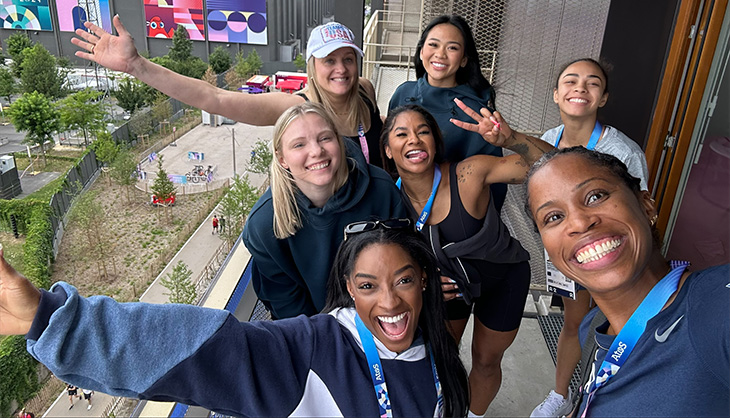
Why is it important to have diversity in medicine?
What we know from the literature is that patients treated by those who look like them have better outcomes. To be a Black female physician taking care of my patients who are female and of minority status is a blessing and privilege. It’s a reminder for me to continue to mentor fellows, students and residents so they can also become part of this field. We can continue to elevate care for all of your patients.
What are you most proud of?
I am most proud of the care I take for all my patients, including those at C Street Sports Medicine Clinic, UCD collegiate athletics and the Olympics.
It's truly an honor to be a part of somebody's story and for them to allow me into their lives at some of their most vulnerable times. After trust is earned both ways, the patients and I can work together towards a quality of life that brings them fulfillment and joy and allows them to reach their dreams.
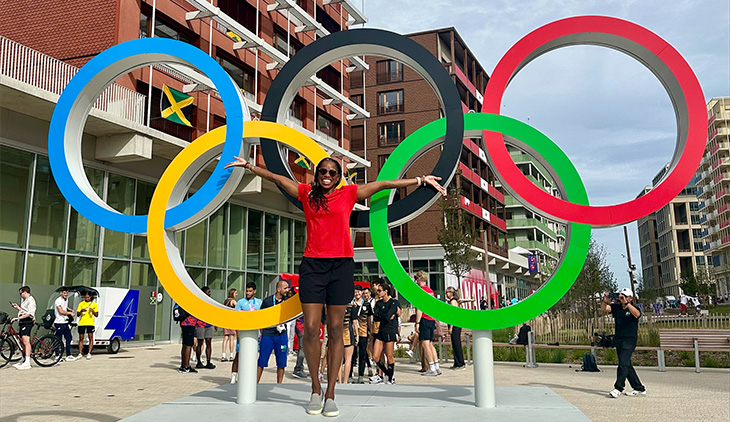
What is your favorite memory of the Olympics?
My favorite memory from the Olympics this year was watching the women win the gold medal and their joy, excitement, and teamwork. They all have their individual stories of hardship, overcoming and resilience, and being part of that winning experience was beautiful.
The other part that I really loved was being in the Olympic Village and spending time with the coaches, the staff and the athletes. I loved seeing the great athletes from all around the world, where we can all sit and eat together and communicate, even if we're not speaking the same language. The Olympic spirit was palpable.
How do you feel about the great recognition you received as the physician for the U.S. Gymnastics team at the Olympics?
I am humbled by the recognition I have received at the Olympics. If, as a Black female physician, I can inspire even one person to pursue a career in medicine, then I consider that a great success. If you can see it, you can believe it. At UC Davis, we strive to use the biopsychosocial approach to caring for all patients, and it’s great to also bring that important approach to taking care of these amazing women.
This interview was edited for brevity and clarity.

